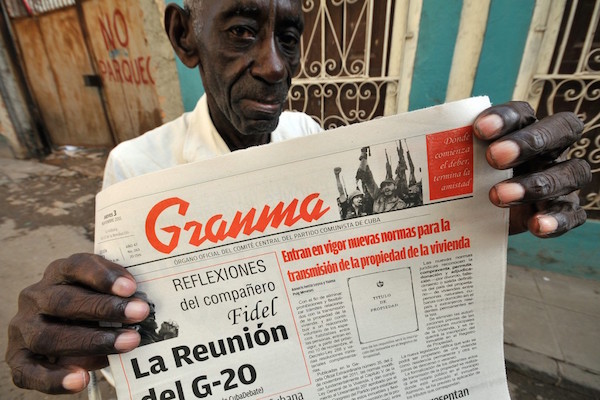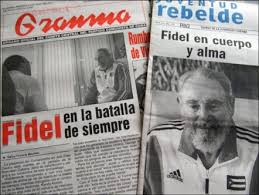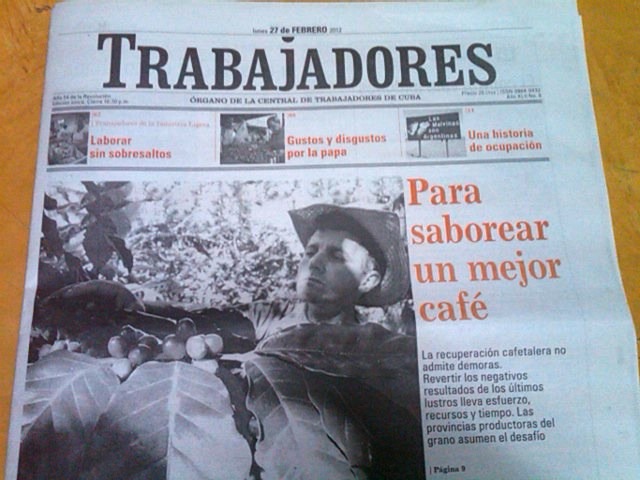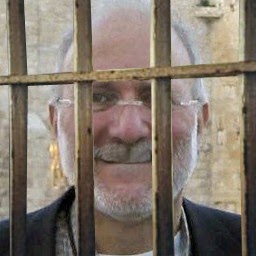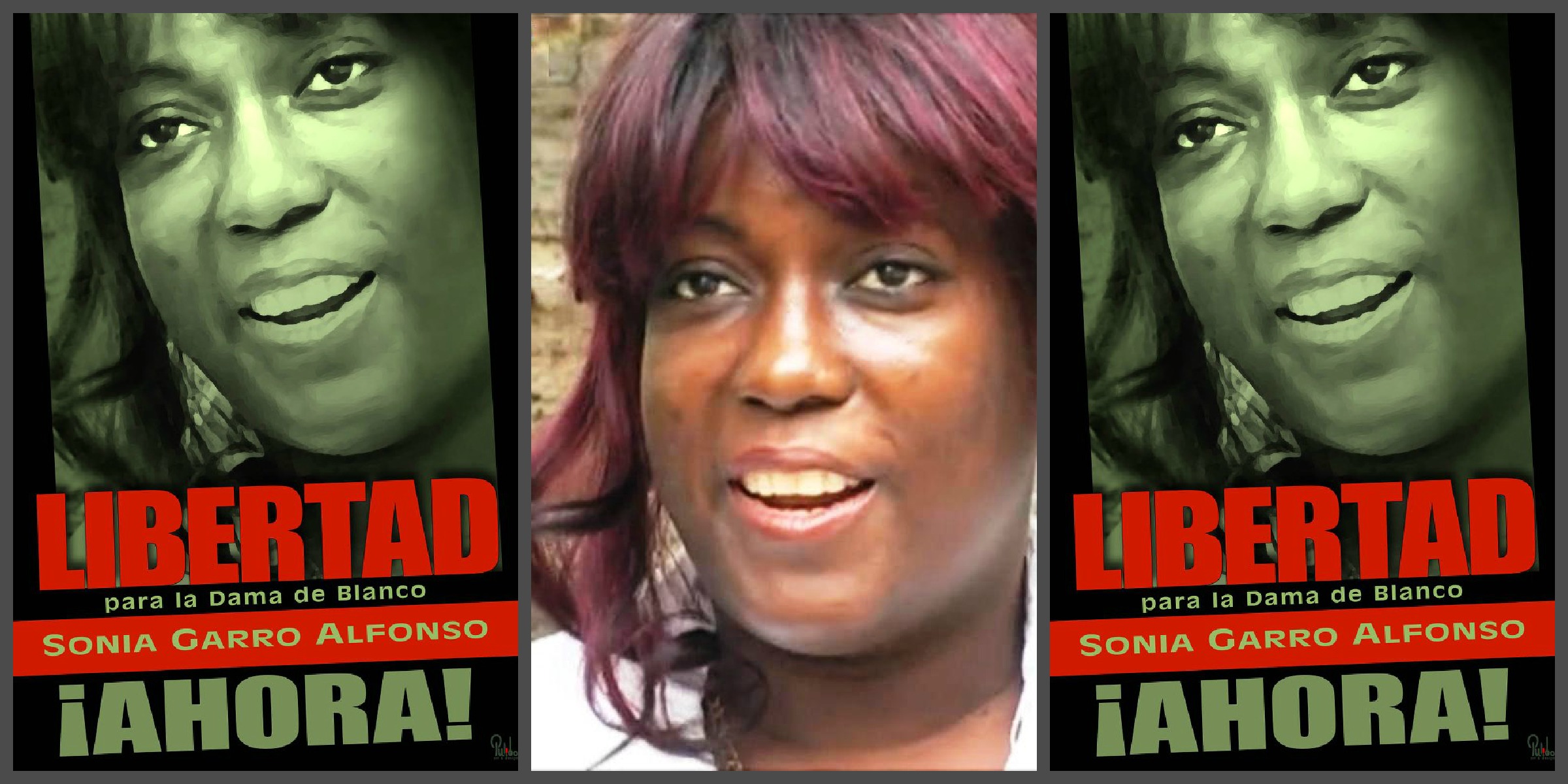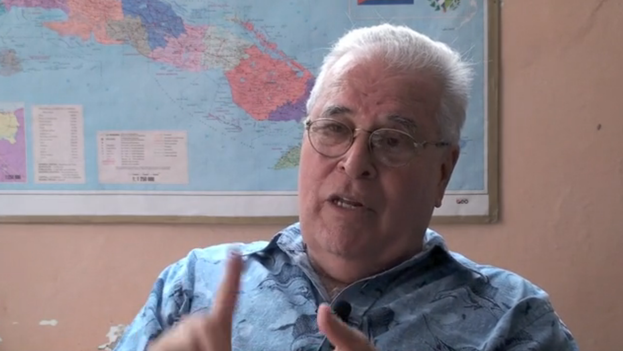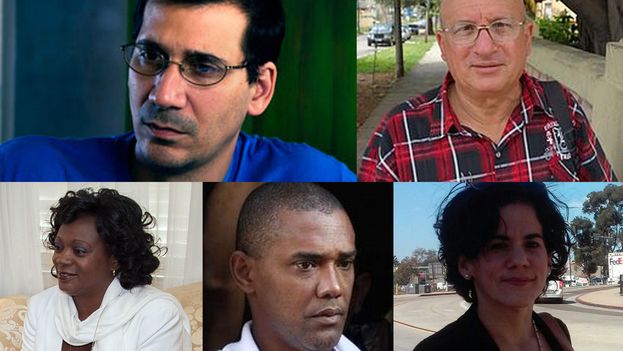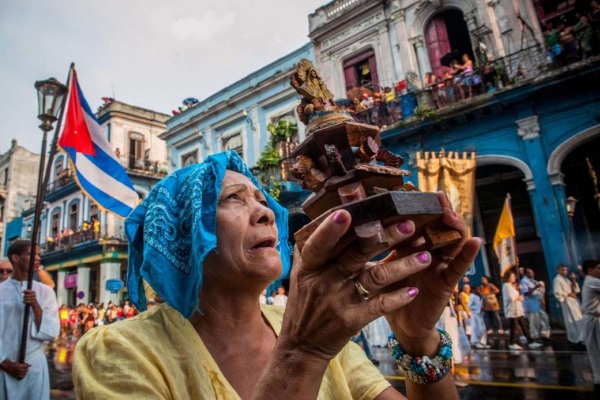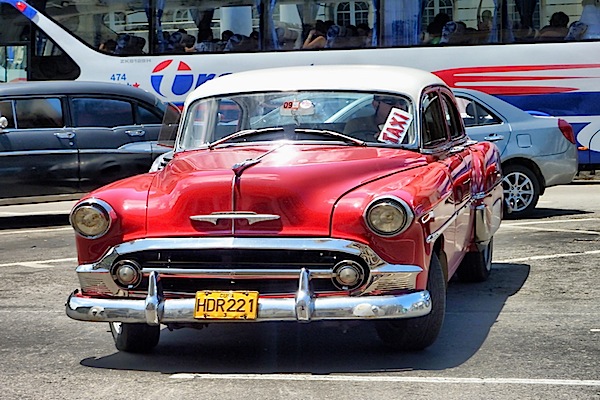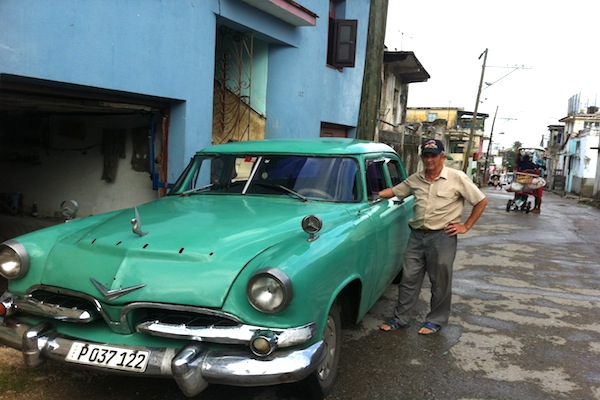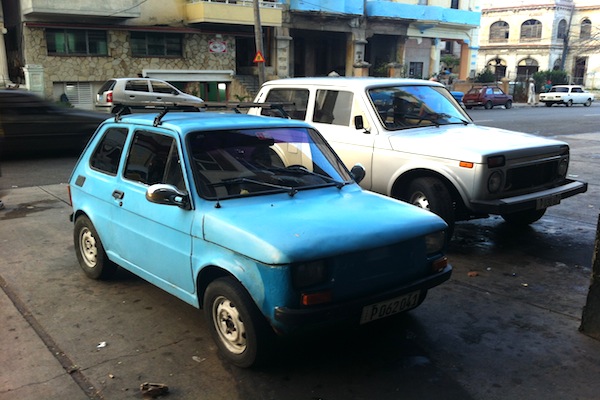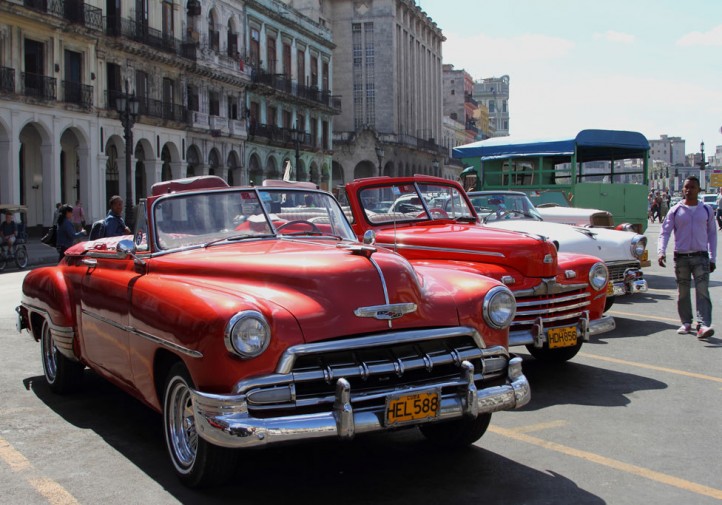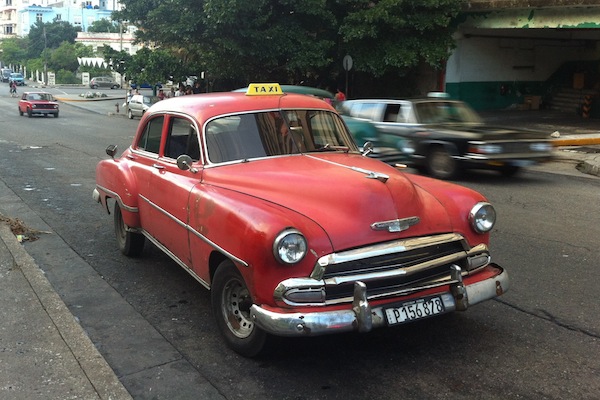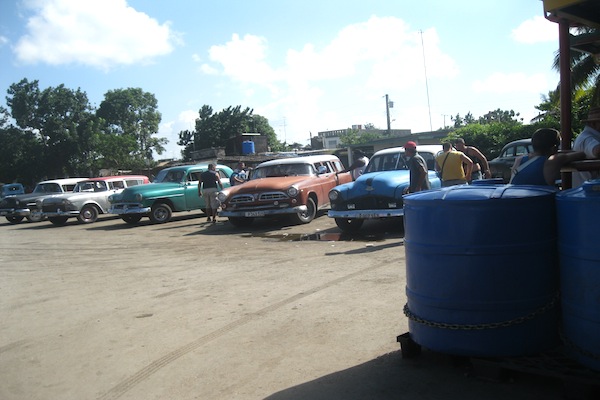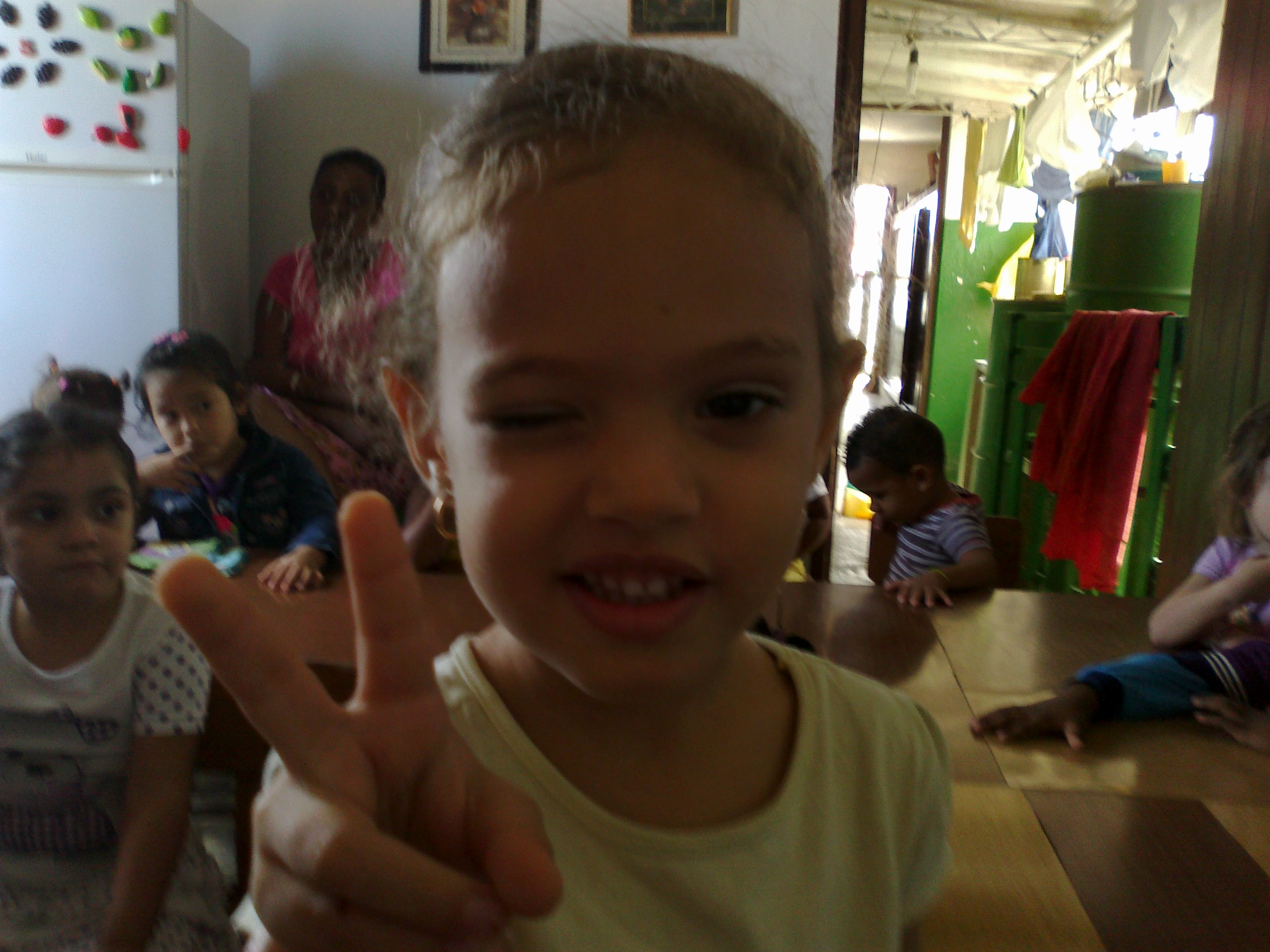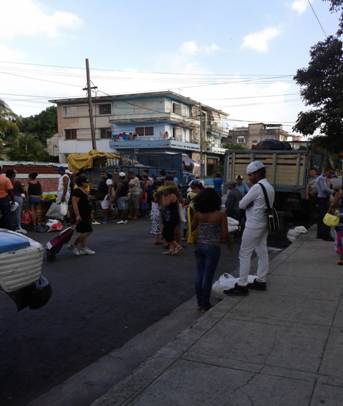
Whatever the Cuban government does, that amorphous thing with no head or eyes, that they call “the masses,” is in its final days. And with it are also ending the repudiation rallies, detentions, physical attacks on the Ladies in White, and other forms of repression.
 Cubanet, Rafael Alcides, Havana, 29 January 2015 — In the first elections of Cuban socialism, an old Communist leader would call the voters from his neighborhood and would instruct them which candidate they should vote for. I, being a provocateur and also a friend of his, told him, “Didn’t we agree to let the masses decide?” He replied to me, with a complicit irony while stopping the next voter in order to instruct him, “Yes, but we need to orient them.” continue reading
Cubanet, Rafael Alcides, Havana, 29 January 2015 — In the first elections of Cuban socialism, an old Communist leader would call the voters from his neighborhood and would instruct them which candidate they should vote for. I, being a provocateur and also a friend of his, told him, “Didn’t we agree to let the masses decide?” He replied to me, with a complicit irony while stopping the next voter in order to instruct him, “Yes, but we need to orient them.” continue reading
I say complicit irony, because that leader understood that I, by that time, should have known all too well that the trappings of democracy are a farce in socialism, mere props. Being, after all, totalitarian, one thing the Socialist State fears is that the citizenry – “the masses” as those who “orient” them call it – could think for itself.
From there proceeds the State’s lifelong fear of the artist, the intellectual – even of those whom it pretends to honor with its paper roses – and its fear of the individual, of the loner. In Cuba, the State – the better to keep an eye on him, and beyond that to convert him into one of “the masses” – made the peasant a member of a cooperative, he who had been granted two plots of land, and whenever possible made him live in housing developments where the units were joined window to window, allowing the residents to watch and overhear each other at good advantage.
Clearly, this fear had to be hidden. Taking advantage of the political circumstances of the moment (we’re talking of the months following the Bay of Pigs), the “Within the revolution, everything; outside the revolution, nothing”* pills were quickly manufactured, which had a certain flavor of patriotism on the outside, and much Soviet medicine on the inside.
Even though they appear to have been produced for use by the intellectuals, these pills have been a daily dose administered to the masses. We observe them when, arguing that “the enemy** is listening,” Cubans are prohibited to speak unless it is to praise the Revolution. Or when, without consulting the people, the government declares wars in which the country will participate with tens of thousands of men. Or when, as right now, the government makes peace with the “enemy” of just a minute ago, according to the surprising announcement by Raúl this past December 17.
All right, now. Following this announcement, which the people have greeted with emotion, these pills have lost their potency. Or, we must re-think this. Besides, logic and the reasoning of the Socialist State tend to not coincide. The foreign press continues mentioning (while the national press doesn’t discuss it) new detentions, operatives stationed outside residences, all with the object of preventing the opposition from attending anti-establishment events, and reporting names of dissidents whose passports have been confiscated or not renewed – who rightfully fear being returned to their former condition of “prisoners at large.”
But, why? When, after all, ‘round about two years ago, they were allowed to travel outside the country, and the government did not collapse. So, then, why this regression? And besides, why now, at this moment, when the hackneyed and same old song about the “plaza besieged” can no longer be invoked?
We are not so Hellenic, although anything can happen in a government full of secrets.
In any case, let the government do what it will now, that amorphous thing with no head or eyes, which the government leaders privately call “the masses,” is in its final days. And with it are also ending the repudiation rallies, detentions, physical attacks on the Ladies in White, and all manner of repression that has up to today been the government’s common practice.
Because, with the ratification of the United Nations Covenants on Civil and Political Rights and on Economic, Social and Cultural Rights – without which as a precondition for the agreements announced on December 17, 2014, Obama would have become a super-generous Santa Claus to Raúl Castro – the dissidents will, finally, enter into possession of the rights that will allow them to dedicate themselves, without government interference, to the formation of political parties, societies, professional schools and institutions, all essential to a democratic civil society. Why? Because in those little pills that are the Covenants — and the reason the government has not wanted to ratify them — is contained all that is necessary to articulate a democracy wherein the citizen can enter an electoral college and vote with decency, without anybody “orienting” him.
Translated by: Alicia Barraqué Ellison
* Translator’s note: A line from Fidel Castro’s so-called “Speech to the Intellectuals,” delivered in June 1961.
** Translator’s note: The “enemy” is a common epithet used by the Castro government and its supporters to refer to the United States.

